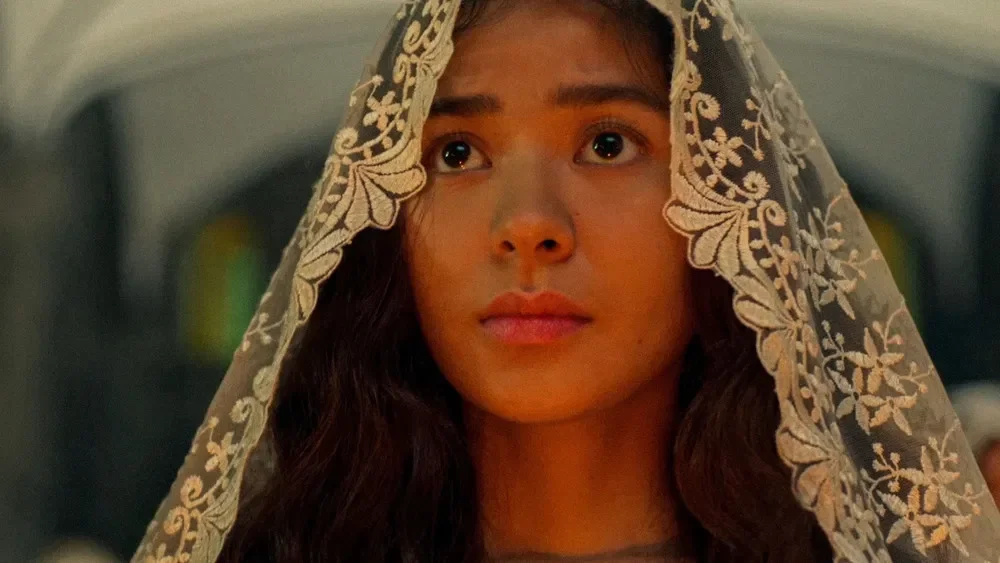‘Gulay Lang, Manong!’ REVIEW: I Love Farmers, Even if Everybody Else Doesn’t
‘Gulay Lang, Manong!’ REVIEW: I Love Farmers, Even if Everybody Else Doesn’t
Chill spoilers for Gulay Lang, Manong!
I remember my harsh introduction to the laboriousness of farming as a child. We lived in a tiny barangay somewhere in Aurora Province, surrounded on all sides by rice paddies and kamote plantations, as if it were an island at the center of a sea of farmland. Much like in any other rural area in the Philippines, agriculture was one of the main sources of livelihood for the people in our barangay.
My father, who was a kamote farmer at the time, once took me to the fields during harvest season so that I could lend a hand. When we arrived, there were already rows of men and women who had been there long before us, baking under the sweltering heat of the sun as they harvested kamote. Some of them had also brought their children along to help.
My father immediately got to work, and so did I, with my own sack where I would put the harvest. I remember how hard the ground was and how difficult it was to pull a kamote out of it. I also remember the heat. It was so extreme that it felt like there was a fire burning inside me, immolating me right where I stood. It goes without saying that I didn’t even last half the day. By noon, my father took me home to rest and went back to the fields right after to finish the harvest.
Looking back at it now, it seemed like he was trying to groom me into becoming a farmer just like him by showing me what he does. What came after this experience was a week-long severe fever — so severe, in fact — that I started hallucinating and talking to people only I could see, according to my relatives anyway. My tiny brain wasn’t aware of it at the time, but I think the fever was my body’s way of telling me that being a farmer was simply not for me.
Farming is, as the popular Tagalog folk song goes, “hindi biro”. It’s hard work reserved for those who are most resolute and industrious. You have to be built differently to do the work. Farmers are the backbone of our country, unsung heroes who tirelessly toil away to provide sustenance for us. It’s disheartening to know that despite their contribution to our society, they’re still not getting the respect and rewards they deserve.
In BC Amparo’s Gulay Lang, Manong!, we get a glimpse into the lives and struggles of farmers through the story of a vegetable farmer named Manong Pilo (Perry Dizon). He faces difficulties in his livelihood caused by exploitative middlemen, stingy customers, and unsympathetic policemen.
His trials become worse when his grandson Ricky (BJ Forbes) gets in trouble for assisting a dealer named Razer (Ranzel Magpantay), who works for a laid-back marijuana farmer named Haring Damo (Dong Abay). This sets him on a collision course with a narcissistic cop named Ariel (Cedrick Juan), who is determined to prove himself by dismantling Haring Damo’s cartel.
The film poignantly raises awareness of the issues plaguing the farming industry through the experiences Manong faces. In one scene, we see him haggling with ungenerous tourists who buy his produce at an inhumane discount. In another, he discusses the steep costs of tenant farming and the deep debt he risks if he can’t pay the landowners. Throughout it all, Dizon infuses Manong with a gentle, grandfatherly charm that evokes sympathy for this elderly man who, despite the hardships, clearly remains devoted to farming.
Such pathos, though, is balanced out by the film's approach to its premise through the lens of a stoner comedy — a niche genre buried under obscurity in the mainstream due to the systemic demonization of marijuana use — ensuring the audience a chill and fun time at the cinema while inviting us to inquire into the challenges that our farmers face.
Parallels are made between vegetables and marijuana plants as a way to criticize the denial of the economic benefits of those plants and the wastefulness resulting from, among many, the archaic and conservative values of the government, the unnecessarily harsh implementation of police power against our farmers, and the exploitative nature of the relationship between farmers and those who hold the means for production. Thus, the film mounts a defense by providing an illuminating education.
What makes Gulay Lang, Manong! such a captivating experience is how it insightfully teaches us about the benefits of medical marijuana while also making a compelling case for its recreational use through its depiction of Ricky, Razer, and Haring Damo as some of the happiest and chillest dudes in Region II. After all, who wouldn’t want to feel unburdened by the weight of the world and just lay back?
The most compelling argument for marijuana’s medicinal use, though, comes through at the end of the character arc of Cedrick Juan’s Ariel, who just can’t seem to turn his charm off. Even when he’s playing a narcissistic asshole who coerces others for his own benefit, we still root for him to see the error of his ways as we learn his real intentions behind trying to take down a “cartel” all by himself.
Ariel’s journey is one of rude awakening, as his beliefs are shaken to the core by the kindness and good times shown to him by those he has deceived and exploited. He also witnesses the medicinal properties of the marijuana plant firsthand in an emotionally charged and powerful scene near the film’s final act that is sure to move anyone with a heart. Ironically, in his attempt to destroy the plant and its farmer, he inadvertently sets himself on a path of love, enlightenment, and healing.
However, despite Gulay Lang, Manong! making strong cases for farmers' rights and the legalization of marijuana for medicinal use, it hesitates to fully commit to its protestations, refusing the characters it painstakingly built for us to endear and to feel for any triumphant end. As a result, the potential impact of the planted seeds — both literal and figurative — feels somewhat diminished. How can we win if we only dream of defeat?
Oh well, at least there’s a glimmer of hope beyond the confines of the cinema.
Gulay Lang, Manong! premiered at the 20th Cinemalaya Independent Film Festival as part of the Full Length Main Competition category. Catch it in select Ayala Malls cinemas from August 2-11.
















